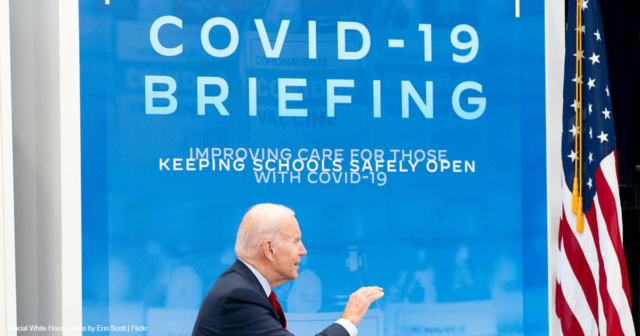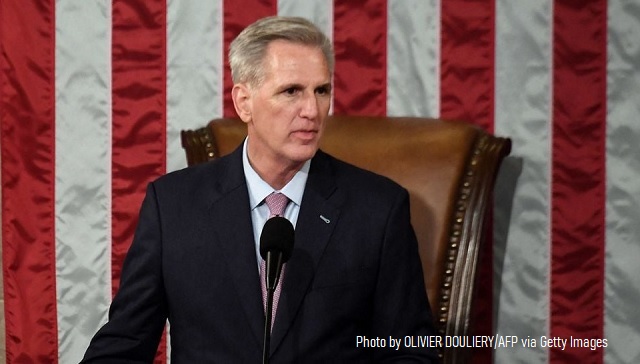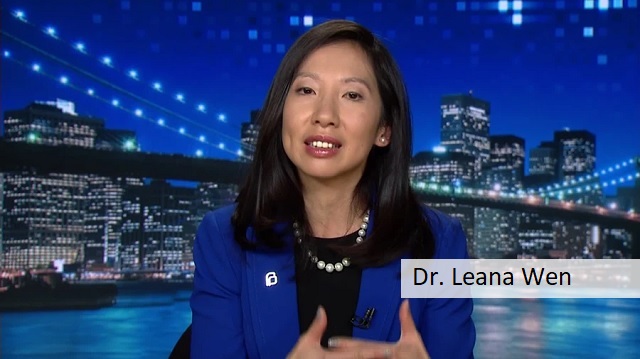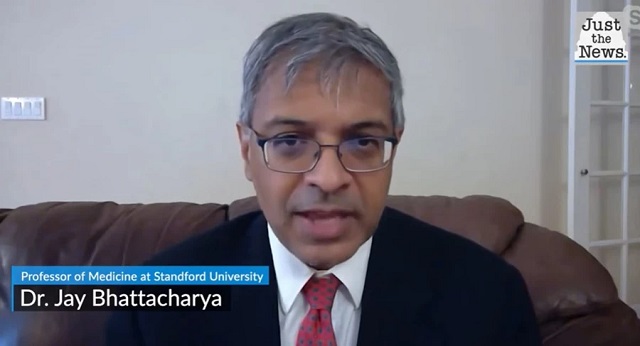‘Just Live Your Life’: Experts Say Biden Admin Distorting COVID Data as Scare Tactic

As health experts downgraded the danger of the latest COVID variant, news broke Sunday that the Biden administration hid government data from the public in 2021 showing that COVID cases among vaccinated seniors was spiking. Medical experts and lawmakers say that the Biden administration is continuing its pattern of distorting and concealing scientific evidence and data surrounding the virus for political gain and societal control.
On Wednesday, Dr. Eric Topol, a professor and executive vice president of Scripps Research, told USA Today that the latest “Pirola” COVID variant has “been downgraded from a hurricane to not even a tropical storm.” The latest data on COVID fatalities confirm Topol’s assessment, with The New York Times reporting that the number of deaths due to COVID in August stood at 600 per week, which was 4% of the 14,000 deaths that occurred weekly in August 2021.
Meanwhile, the White House appears to be ramping up COVID precautions at a time when most Americans have moved on from pandemic-era practices such as masking and social distancing. After First Lady Jill Biden contracted COVID last week, White House press secretary Karine Jean-Pierre announced that President Biden would be following CDC recommendations by “masking in this 10-day period.” But Biden apparently flouted the recommendations during a ceremony at the White House on Wednesday.
Still, businesses, schools, and hospitals appear to be taking their cues on masking from former Biden administration official Dr. Anthony Fauci, as a number of them have reinstated mask mandates. On Saturday, the former White House COVID czar stated that he is “concerned that people will not abide by” likely future CDC recommendations to wear masks in public again. Although Fauci said that “the CDC does not mandate anything,” Dr. Marc Siegel, a clinical professor of medicine at NYU Langone Medical Center, pointed out that “the agency’s recommendations have frequently led to state, local, and business mandates.”
A major, “gold standard” study released in February on the effectiveness of masking found that “wearing a mask may make little to no difference in how many people caught a flu-like illness/COVID-like illness … and probably makes little or no difference in how many people have flu/COVID confirmed by a laboratory test.”
The seeming disconnect between government policy and scientific evidence, as well as concerns over basic civil liberties, are leading lawmakers to respond. On Thursday, Senator J.D. Vance (R-Ohio) introduced legislation to forbid mask mandates on planes, public transit, and schools over the next 15 months.
Observers are also noting that data on masking is far from the only COVID-related scientific evidence that the Biden administration is ignoring. On Sunday, The Epoch Times reported that data compiled by the U.S. military in 2021 showing that fully vaccinated seniors were experiencing high rates of breakthrough cases of the virus was not only hidden from the public, but also from health officials within government agencies like the FDA.
“[T]hat story is really shocking,” remarked Dr. Jay Bhattacharya, an epidemiologist and professor of medicine at Stanford University, on Wednesday’s edition of “Washington Watch with Tony Perkins.” “[T]he CDC had information from an analysis of Medicare data … that the vaccine was waning efficacy in September 2021. That meant that there were a large number of seniors that were relatively unprotected by the Delta wave that was hitting the South back then in 2021. It was right around that same time the Biden administration pulled the allocation of monoclonal antibodies to the American South, claiming that they wanted to save it for later. A lot of people died as a consequence of that hidden information.”
Bhattacharya continued, “If the CDC had shared that information more broadly, then we might have been able to protect those older people during that deadly Delta wave. … And the reason [the information wasn’t shared] was very simple. They thought that if they told people, people would stop taking the vaccine. But scientific data like that are a public good. You don’t use it for propaganda purposes. You use it to tell people true things so that people can make good decisions.”
Bhattacharya went on to lament that the Biden administration has not appeared to learn any lessons from the initial response to the pandemic.
“[U]nfortunately, it just seems like we are trying to make the same mistakes again,” he observed. “I think with mask mandates, with essentially recommending boosters before we actually have high quality randomized data, ignoring the fact that the population has very broad … immunity thanks to recovery from COVID. … I think that the idea that what failed before will work now is an amazing thing to me. Science normally learns from its mistakes. … [Y]ou make a mistake and you change your hypothesis and then you test that next hypothesis. Here what we see is the opposite of that, where it seems like we’re just doomed to repeat ourselves over and over again.”
Bhattacharya further called for an official government commission to be held in order to assess America’s response to the pandemic.
“[W]hat hasn’t happened is an official inquiry, kind of like a 9/11 Commission,” he explained. “The goal isn’t to blame anybody. The goal is to learn lessons from what went wrong so we don’t do it again. I wrote something called the Norfolk Group document, along with seven other scientists where we lay out an agenda for an honest COVID commission. [We] deserve answers on vaccine efficacy and side effects, on mask efficacy, on lockdowns, lockdown harms, school closures, why immunity after COVID recovery with natural immunity was ignored. … And yet there doesn’t seem to be any official interest on the part of the Biden administration to actually conduct such an inquiry.”
As to his advice for the American public going forward, Bhattacharya was candid.
“I think for most people, just live your life,” he emphasized. “… [I]mmunity is an honest to God real thing. … [J]ust live your life and don’t worry so much. Now, if you are older or [are] vulnerable in other ways, go talk to your doctor. … But the point is that we should not be treating COVID as something around which we reorganize our entire life. We should instead be treating COVID as something that’s manageable.”
AUTHOR
Dan Hart
Dan Hart is senior editor at The Washington Stand.
RELATED ARTICLES:
Problem of Remdesivir Vs. Ivermectin solved
Keep Calm and Treat COVID as Seriously as President Biden
Democrat Blocks Senate Bill To Ban Mask Mandates Nationwide
Precedented: Tommy Tuberville Isn’t the First to Hold Up Military Promotions
EDITORS NOTE: This Washington Stand column is republished with permission. All rights reserved. ©2023 Family Research Council.
The Washington Stand is Family Research Council’s outlet for news and commentary from a biblical worldview. The Washington Stand is based in Washington, D.C. and is published by FRC, whose mission is to advance faith, family, and freedom in public policy and the culture from a biblical worldview. We invite you to stand with us by partnering with FRC.




